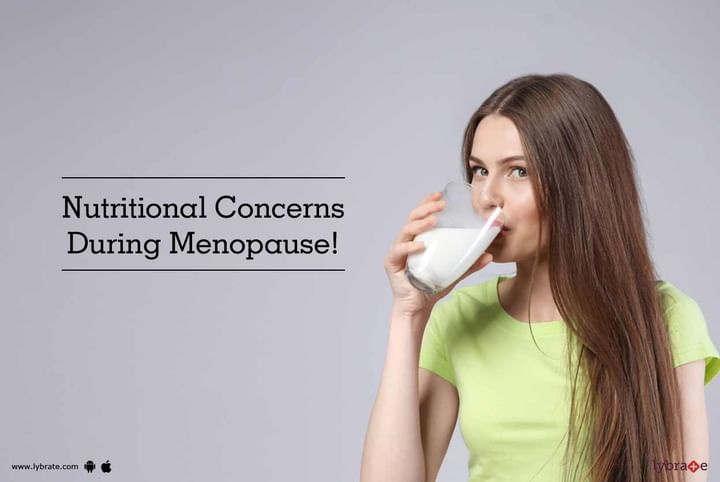Nutritional Concerns During Menopause!
Menopause is a phase when the estrogen in the body starts to diminish. Every woman has to face this "change of life" at the time of her last period. On average, women reach menopause at age 51, but it can happen earlier or later. Menopausal symptoms vary with every woman. Common symptoms include hot flashes, night sweats, weight gain around the middle, sleep disturbances and mood changes. However, some women go through menopause with no real symptoms.
What causes menopause? Hormones. As women age, your ovaries produce less estrogen and progesterone, two of the main hormones for reproduction. As estrogen levels go down, one of the first signs of "menopausal transition" is irregular periods in which bleeding is unusually heavy or light; the time between periods also may become longer.
While the symptoms and the risk factors of menopause cannot be negated in totality, good nutrition can ease certain condition for the body. A variety of food along consisting of enough iron and calcium is of prime importance during this phase. Here is a basic guideline of the dietary her healthy practices one should follow:
- Enough calcium intake: A daily serving of three to four dairy based products can pay rich dividends in the endeavor of acquiring calcium for the body. Other calcium-rich food sources include fish such as salmon and sardine, legumes and broccoli. The aim should be to intake a minimum of 1200 mg of calcium daily.
- Iron is a must: Three servings of iron-rich diet is a necessity for the body. Some iron rich food sources include red meat, nuts, grain products, green vegetables, red meat, poultry etc. Acquiring 8 MG of iron daily is a must for every woman going through the phase of menopause.
- Fiber is a key dietary component: The intake of fiber rich food is a necessity during menopause. Some fiber-rich food includes bread, fresh fruits, pasta, cereals etc. A daily intake of 21 gms of fiber content is essential for the body to function properly.
- Gamma Linolenic Acid: This is a form of fatty acid that is extremely crucial to regulate the balance of hormone and maintain health during menopause. Good sources of Gamma Linolenic Acid or GLA are vegetable oils originated from hemp seed, primrose, blackcurrant etc. Intake of these oils along with curry or salad should do the trick.
- Intake of Magnesium: The human skeleton is comprised of 60 percent of magnesium. Over 300 enzymes require magnesium for a various catalytic reaction of the body. Needless to mention that intake of magnesium is crucial for a woman going through menopause. Some good sources of magnesium include halibut fish, leafy vegetables, grains, seeds etc.
- Intake of Phytoestrogens: Soy isoflavones are rich in phytoestrogens. Good source of the same include soya milk, soya beans, tofu etc. Soy protein is extremely beneficial due to their support function of HDL. It can even influence positive heart function. Studies have found that phytoestrogens can successfully limit the flow of free radicals in the body and block the signs of aging.
- Antioxidants Vitamins: Vitamins, especially A, C, and E are known to be mighty effective in maintaining good menopause health. Food items such as kale, butter, turkey, pork are a great source of vitamin A. Rose hips, lemon, strawberries, sprouts are good sources of vitamin C. Vitamin E can be found in certain food items such as avocado, spinach, hazelnuts, sunflower, milk, asparagus, whole grain etc. If you wish to discuss about any specific problem, you can consult a Dietitian/Nutritionist.



+1.svg)
